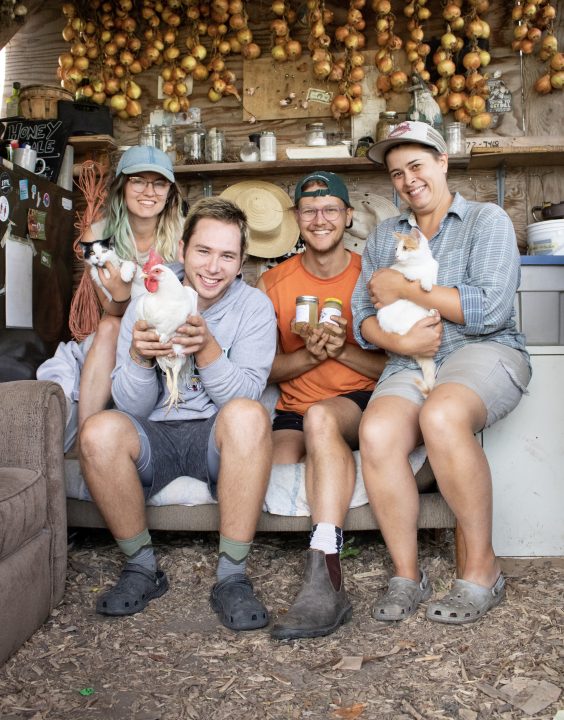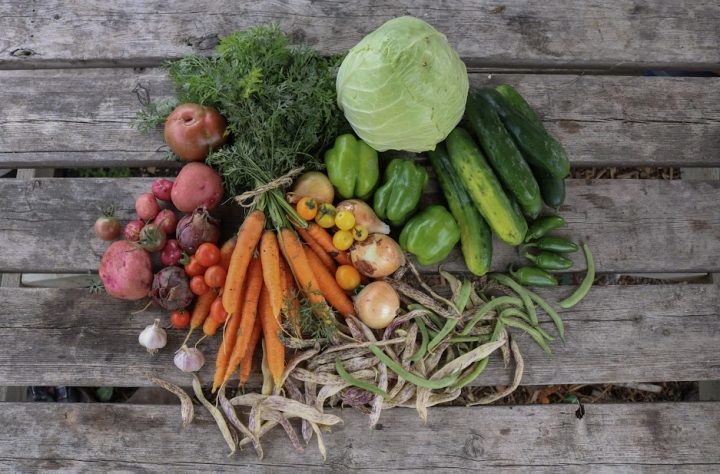“Metanoia applied for Young Agrarians’ Business Mentorship Network program because in our excitement to develop a volunteer based, community urban farm, we didn’t want to do it alone, and knew that there are many other people doing similar work to us that could act as invaluable resources in our journey.”
– Metanoia Farmers Worker Cooperative
Young Agrarians is celebrating the eleventh year of the Business Mentorship Network (BMN) program in BC and the third year of the BMN in the Prairies! The BMN offers farm business mentorship to a diverse array of new and young farmers. The mentorship is offered over the course of a year. Through one-on-one mentorship, peer networks and online workshops new farmers develop the skills necessary to operate ecologically sustainable and financially viable farm businesses.
Applications for Mentees across Western Canada open in October 2025. Mentor applications are accepted year-round. Check out the Business Mentorship Network page for more information!
Meet a mentee from the current cohort and learn about their farm and why they joined the Business Mentorship Network. Want more? Head over to our BMN Blog for more mentorship stories.
Meet a Mentee: Metanoia Farmers Worker Cooperative
Metanoia Farmers Worker Cooperative is currently comprised of Megan Klassen-Wiebe (she/her), Bryn Friesen Epp (they/them), Kay Drudge (they/them), and Trey Dornn (he/him), plus around a dozen farm sharers who will join for the growing season, and is located at the outskirts of the Assiniboine forest on Treaty One territory in Winnipeg, Manitoba.
Metanoia is being mentored this season by Frédéric Thériault of Ferme Coopérative Tourne-Sol and Productions Locavores in Quebec.

Mike Thiessen / Winnipeg Free Press
(From left) Kay Drudge, Trey Dornn, Bryn Friesen Epp, and Megan Klassen-Wiebe, the farmers at Metanoia Farmers Worker Co-op
The farm began in 2011 and was started by a group of Canadian Mennonite University students and alumni who were inspired by conversations during their university education and their desire for sustainable and just food systems. After a proposal to Canadian Mennonite University, a MOU was reached and one acre of lawn on the edge of the university’s campus was converted into a small-scale farm. These students and alumni brought together knowledge from family farms, city gardens, university degrees, and farm internships to start a Community Shared Agriculture (CSA) program that ran for 14 seasons until 2024.
Metanoia is now taking a new direction, and instead of solely relying on monetary payment for vegetables, the co-op trades land plots and vegetable shares for labour shares. This often looks like farm sharers committing two hours of volunteer time a week in exchange for a personal garden plot on the farm or fall storage vegetable share. The shared labour goes toward growing vegetables for Canadian Mennonite University’s cafeteria and on-campus cafe, folio. This change in practices was and is inspired by a desire to make farming accessible, in regards to both finances and time commitments, within the city. Farm work at Metanoia is done on a volunteer basis alongside farmers’ other careers, in a small attempt to bridge the gap between growers and eaters, producers and consumers. In addition to growing vegetables, Metanoia runs a small egg CSA.

From its inception, Metanoia has used organic practices, prioritized human power over machinery, and has only planted heirloom and open-pollinated vegetable varieties. In recent years, the farm has focused on incorporating no-till practices and learning from Indigenous agriculture practices (recently repackaged as “permaculture”). We deeply believe that the land knows how to heal, so as we face the uncertainties of climate change, we continue to root ourselves in slow work that allows us to notice how flora, fauna, and fungi adapt and care for one another.
Metanoia applied for Young Agrarians’ Business Mentorship Network program because in our excitement to develop a volunteer based, community urban farm, we didn’t want to do it alone, and knew that there are many other people doing similar work to us that could act as invaluable resources in our journey. This season we are prioritizing developing policies, creating dynamic volunteer systems, and determining a longer term plan beyond this experimental pilot year. Our greatest challenge in this coming year is moving from four full-time farmers to a volunteer base of over a dozen farm sharers. This is also our greatest excitement.
If you want to follow Metanoia Farmers Worker Cooperative, contact us via email (metanoiafarmers@gmail.com) to join our newsletter, or follow us on Facebook and Instagram (@metanoiafarmers).


 Filter by Popular Categories
Filter by Popular Categories
